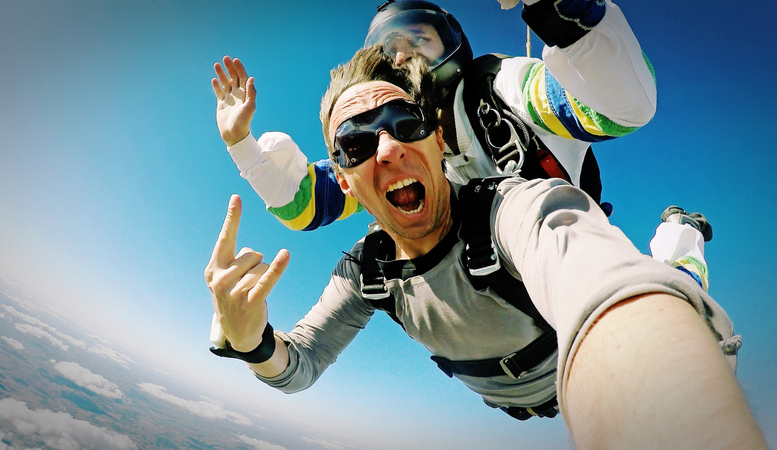Imagine you go to the shop to buy bread.
You know what you need though you haven’t given it too much thought. On being confronted by the aisles of bread — the oodles of variety — you find yourself stuck in that moment, overwhelmed by choice and not sure what brand you came for in the first place. You have a choice in that moment, do you view this as a negative or a positive?
Well it may not surprise you that the Media MICE team is all about that positivity, an attitude that no doubt explains some of our outfits at previous ophthalmological congresses. Yes, Day 2 of the joint European Society of Cataract & Refractive Surgeons (ESCRS) and the European Society of Retina Specialists (EURETINA) congress presented us with choices. So much in fact that our metaphorical heads were spinning.
And we were loving this. Beginning with a deep dive into the future during Clinical Research Symposium: Artificial Intelligence in the morning to Impact of COVID on Retinal Anti-VEGF Outcomes towards the evening, we had so many different events to choose from. Our only issue was that we could have used more devices and computers to watch as many streams at one time as possible!
So Much Ophthalmology and So Little Time
A good example of this was the one hour-long slot between 1:00pm and 2:00pm where no less than four sessions took place. These were Alcon Cataract Solutions for the New Normal, Medicontur: Application of Evidence to Clinical Practice in Multifocality, JNJV: Beyond Functional Vision – Turning IOL Visual Performance into Real Patient Benefits and Ziemer: FEMTO LDV Z8 – Continuous Innovation. Our necks were working so hard to support our spinning heads from session to session we’re now all booked in for a virtual orthopedist conference, presumably with fewer sessions to shoulder more easily.
All four ESCRS corporate symposium were particularly insightful but the first session, Alcon Cataract Solutions for the New Normal, stood out for its focus on coronavirus. Chair Dr. Kristina Dziekan highlighted how one million cataract surgeries were postponed thanks to the coronavirus pandemic. The session focused on how to alleviate this backlog systemically and via technology, and in this backlog lies opportunity.
Cataracts were again the focus during a symposium later on in the day, namely Young Ophthalmologists Session: What Can Go Wrong After Cataract Surgery? Of course, every care is taken to avoid damage during cataract surgery but sometimes complications can arise. Aimed at younger or newer specialists (no surprises), Dr. Vincent Qin outlined his own experience eloquently.
In Dr. Qin’s experience the main causes of dissatisfaction post-cataract surgery are dry eye and ocular surface disease. During his presentation the doctor outlined how clinicians must attempt to identify dry eye pre-surgery, and should also carry out a full preoperative assessment for fry eye and ocular surface disease. He recommended using short course topical corticosteroids and unpreserved artificial tears to treat patients with dry eye.
Post-operative complications are always a consideration which is likely what motivated a group of doctors at the Samara State University of Russia in their research 3D Navigation of the Lens. The researchers, led by Dr. Vadim Stebnev, used a new 3D visualisation system with navigation support during lens surgery. Over 2,000 patients were operated on in total.
Monofocal, multifocal and multifocal toric IOLs were implanted using the 3D device and the results were fantastic. Not a single intraoperative or postoperative complication was reported and the Russian doctors reported that the 3D divide was ‘not difficult to master.’ We look forward to more clinicians using this technology.
Advanced technology like 3D imaging and AI were definitely major topics at this year’s conference. Papers like Dr. Arahabm Olvera-Barrios’s, Diagnostic Accuracy of Diabetic Retinopathy Grading by an Artificial Intelligence-Enabled Algorithm Compared with a Human Standard for Wide-Field True-Colour Confocal Scanning and Standard DIgital Retinal Images, yes that is the full name and yes it’s probably a world record, examined AI’s applicability to diabetic retinopathy.
Dr. Olvera Barrio’s research compared true color wide-field confocal scanning images with standard fundus images. He concluded that Eye Art software, used for the true color images, is accurate and sensitive enough for large scale diabetic retinopathy screening. He believes it can be implemented in an increased number of clinics, great work! (But maybe work on the names…?)
There wasn’t an award for best research paper/poster name, sadly. However, both the ESCRS and EURETINA sections of the congress had dedicated channels for prize winning research. EURETINA covered seven distinct channels covering subjects from new drug and treatment technology to vascular diseases and diabetic retinopathy. First prize at ESCRS went to Corneal Cross-linking for Treating Infectious Keratitis: Final Results of the Prospective Randomized Controlled Multicenter Trial. Kudos!
Hot News Straight Off the Wire
As the congress drew to a close one of the last sessions shed light on breaking news and developments in the retinal sector. Late Breaking and Reviews (we’re not sure if they missed ‘news’ here) covered a wide array of retinal developments including age-related macular degeneration (AMD), pharmaceutical trials and more. It was a fast paced and full on symposium.
Prof. Dr. Frank Holz, chairman of the ophthalmology department at the University of Bonn, Switzerland, presented on the success of Zimura in clinical trials, being used to treat macular degeneration. Dr. Robert Avery at the University of California, Santa Barbara, reported on using gene therapy to treat AMD. Other presenters reported on their latest advancements and it was a great way to end Day 2.
Looking forward to Day 3 of the combined ESCRS & EURETINA conference? We are, and we’ll be reporting on every aspect of proceedings, so make sure you stay subscribed to Media MICE so that you don’t miss out on the latest ophthalmology news. Be sure to stop by the Media MICE virtual booth too where you can say hey to the team directly. Till tomorrow!



